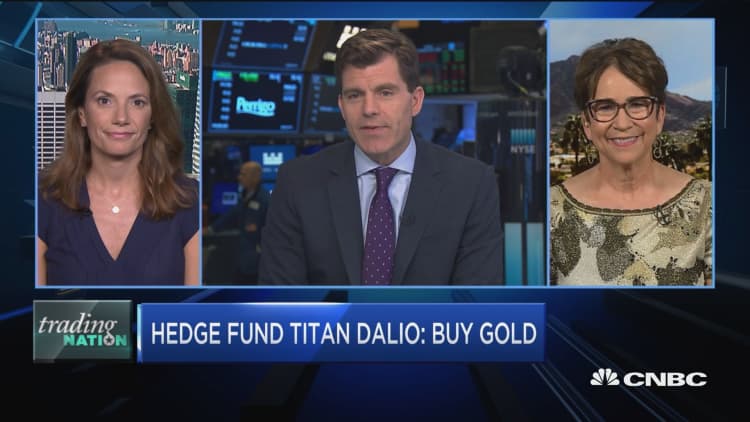Bridgewater Associates' flagship fund reportedly posted one of its worst first-half performances in two decades, as global equity and bond markets rebounded on expectations of looser monetary policy.
The firm's Pure Alpha fund, which tries to follow and capitalize on macroeconomic trends, lost 4.9% in the six months ended June 30, the Financial Times reported. The losses were especially heavy in January, when the Pure Alpha fund declined 4.5%, the FT said, hinting that the firm may have suspected more market losses following a turbulent Christmastime sell-off.

The FT, citing a person familiar with the situation, also reported that the fund had since trimmed some of the losses and is down 1.45% this year through mid-July. Still, that pales in comparison to the broader stock market: The S&P 500 is up more than 18% year to date and the FTSE All-World index is up more than 15% since January.
Bridgewater did not respond to CNBC's request for comment. The firm, the world's largest hedge fund, was founded by Ray Dalio and oversees about $160 billion in assets.
The report on Bridgewater's first-half performance comes just days after Dalio wrote in a LinkedIn post that investors are too concentrated in stocks and similar securities. Instead, he advocated putting money into gold, traditionally viewed as a more conservative investment for its stability during times of tumult.
"I think these are unlikely to be good real returning investments and that those that will most likely do best will be those that do well when the value of money is being depreciated and domestic and international conflicts are significant, such as gold," he wrote.
— Click here for the original Financial Times report.


